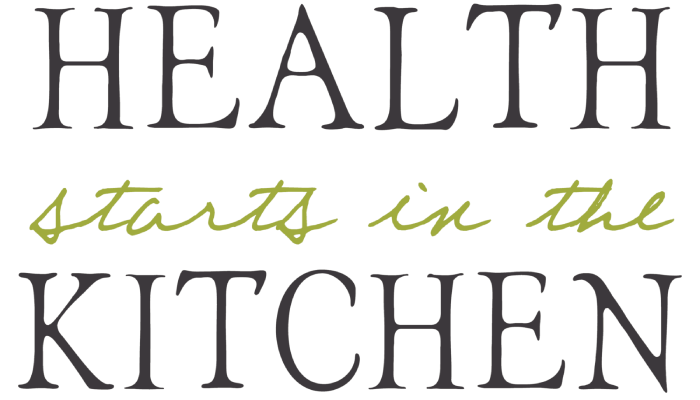A Guide to Supporting Your Immune System at Every Step
In 2021, the Centers for Disease Control and Prevention (CDC) reported that the death toll per year is 3,464,231. This was attributed to heart disease, cancer, COVID-19, stroke, diabetes, liver disease, and other diseases.
With the rise in mortality rates, it is of keen importance that individuals ensure that they are living a healthy life. A healthy life is not necessarily the absence of a disease or illness, rather it is a state of complete physical, mental, and social well-being.

A precursor to having a good immune system is having an unparalleled healthy life. You may ask “How can I live a healthy life so my immune system is good?”.
Education is the foundational block in ensuring you are on the right path, and with the flexibility of learning modes now enrolling into an MSN direct entry program will be perfect.
Additionally, this article will equip you with proven steps to ensure your immune system is not vulnerable.
1. Have adequate rest per day
Research has shown that sleep has a direct effect on the functioning of the immune system. Lack of sleep reduces the functionality of the immune system, which renders the body more susceptible to illness and diseases.
The National Sleep Foundation US proposed the best sleep hours for a range of age groups.
For newborns aged 0-3 months, it is recommended to get in 14-17 hours per day, which is essentially more than half of their 24-hour day.
A 12-15 hours of quality uninterrupted sleep is recommended for infants aged 4-11 months.
Parents with toddlers thus within the range of 1-2 years of age must ensure their kids get 11-14 hours of good sleep to ensure maximum development of their immune system. 10-13 hours is required for preschoolers within the range of 3-5 years.
Children who fall within the age range of 6-13 years must sleep 9-11 hours. With an hour reduction in the hours for teenagers (14 -17 years), 8-10 hours is recommended.
7-9 hours is recommended for young adults (18-25 years) and adults (26 – 64 years) alike.
For people aged 65 and beyond, a good sleep schedule is defined as sleeping within 7-8 hours per day.
If you are among the many who have a hard time sleeping, try to not use your electronic device such as the phone, TV, or computer at least an hour before sleeping.
Electronic devices emit blue light which is mostly known for disrupting your body’s natural wake-sleep cycle.
Sleeping in a completely dark room enhances your likelihood of having better and longer sleep duration which serves to boost your immune system.
2. Consume more whole plant-based meals
Whole plant-based foods are rich in nutrients and antioxidants which are needed for the optimal functioning of the immune system.
But what are antioxidants?
Antioxidants are molecules that fight free radicals in your body. Free radicals are compounds that can cause serious harm such as diabetes, heart disease, and cancer if their levels become too high in your body.
Antioxidants are found in fruits, vegetables, nuts, seeds, and legumes.
Vitamin C which is readily available in fruits and vegetables plays a significant role in alleviating the harsh effects of a common cold.
3. Consume more healthy fats
Salmon and chia seeds are very high in omega-3 fatty acids. Omega-3 fatty acids are vital for your brain and retina to function properly.
Omega-3 fatty acids are made up of three acids: Alpha-linolenic acid (ALA), Eicosapentaenoic acid (EPA), and Docosahexaenoic acid (DHA).
ALA is mostly for energy, EPA reduces symptoms of depression and helps fight inflammation in your body, and DHA is mainly used for brain development and protection against heart disease, cancer, and other health problems.
Particularly for gestational ladies, omega-3 fatty acids are needed as it is beneficial for the unborn baby’s health and intelligence.
It is also recommended to increase the intake of olive oil as it decreases the risk of heart disease and type 2 diabetes.
The anti-inflammatory properties of healthy fats are good for guiding the immune system as they fight off harmful disease-causing bacteria and viruses.
4. Reduce intake of sugars
Studies have shown that uncontrolled intake of sugar (glucose) has a direct effect on the immune system.
Being overweight and obese is also a consequence of increased sugar intake which leads to increased susceptibility to developing type 2 diabetes, a deadly illness that has several complications such as blindness, amputation, and kidney failure.
Reducing your sugar intake helps decrease inflammation and aid in weight loss.
The American Heart Association (AHA) recommends a “stricter added-sugar limit of no more than 100 calories per day (about 6 teaspoons or 24 grams) for most adult women and no more than 150 calories per day (about 9 teaspoons or 36 grams of sugar) for most men.”
The AHA also recommends a “lower daily limit of added sugars for children ages 2-18 to less than 6 teaspoons or 24 grams per day, and sugary beverages should be limited to no more than 8 ounces a week.
5. Exercise regularly
The practice of physical activities such as going to the gym, walking, and jogging strengthens the immune system.
Current research has found that frequent physical activity is linked to a better response to viral communicable diseases such as COVID-19.
In addition to the five points mentioned above, other proactive ways of supporting your immune system include:
- Staying hydrated
- Maintaining good mental health
- Consumption of fermented foods such as yogurt, sauerkraut, kimchi, kefir, and natto.
Conclusion
Living a healthy life is within everyone’s reach. The only hindrance is an oblivious hindrance to adhering to the holistic steps mentioned above.
Sleeping long hours, consuming more whole plant-based meals and healthy fats, reducing the intake of sugars, and committing to a regular schedule of exercising will do more good than harm to our delicate immune system.
Additionally, drinking 1 L of water per day, ensuring your mental health is in a good place, and consuming fermented foods regularly will also boost and support your immune system.






